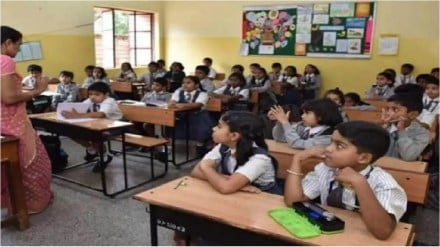The National Education Policy (NEP) 2020, which recommends the use of mother tongue as a medium of instruction in schools whenever possible – until at least till 5th grade, seems to have been met with mixed responses. While some people believe that teaching in mother tongue in the formative years improves learning, others say it can limit their scope of interaction and later restrict growth in their professional lives where English still holds prominence. “Teaching in mother tongue is important, but if you look from the job market point of view, English is the global language used for both communication and trade. So there is a need to learn the language to survive in real life no matter how imperial it may sound,” Jonali Das, principal, Modern English School, Kahilipara, Guwahati said. She added that children will face difficulty in coping with learning English later on if mother tongue is made mandatory in schools.
For instance, in states such as Delhi where schools have a diversity of children belonging to different states in a single classroom, implementation of such a recommendation is perceived to be a big challenge, given that each child has his or her own mother tongue. Thus to select one particular mother tongue as a medium of instruction will be very difficult. On the contrary, in regional schools, implementation of this recommendation is seen to be carried out more smoothly due to homogeneous groups in classrooms. However, Sanyam Bhardwaj, joint secretary and officer on special duty, Central Board Of Secondary Education (CBSE) said that schools with multicultural classrooms can solve this problem by adopting the widely spoken language in the region as the medium of instruction. “In the case of Delhi, Hindi can be considered as the medium of instruction as it is spoken and understood by the majority,” Bhardwaj added.
Many have criticised this as a push to promote Hindi as the mother tongue which is a controversial topic in India. Outside the Hindi-speaking belt, this clause from NEP has not found supporters and is believed to be an agenda of the ruling party. Earlier in April 2022, the Tamil Nadu school education commissioner had released a press note disapproving the three-language policy being mooted by the Centre. Tamil Nadu Chief Minister M.K. Stalin had described it as an attempt to “impose Hindi and Sanskrit”.
Another issue in implementing NEP’s recommendation is that more and more parents now want their children to study in English medium schools. This is also because not only children are ambitious, so are parents. Smita Mishra, mother of an 11-year-old, said that learning English is very important as it is a global language. “I want my child to study in English, otherwise how will he be able to adapt if he goes abroad to study,” she said while adding that children already speak their mother tongue at home. However, Bhardwaj said that learning English in the later grades will not be a problem for children. “I have done my entire schooling from Uttar Pradesh board and I don’t think I face any difficulty in speaking the language,” he said.
Meanwhile, Rina Singh, principal, The Khaitan School, Noida said that implementing NEP’s recommendation wouldn’t be difficult. She pointed out that the new education policy states that whatever common language is spoken by the majority in an area, should be taken as the medium of instruction. “If Hindi is the language spoken in the area, it should become the medium of instruction. Hindi will just be the medium of instruction in such schools, it doesn’t impose any language on anybody,” she explained.
Also Read: Role of vocational education and training in reducing unemployment in India
